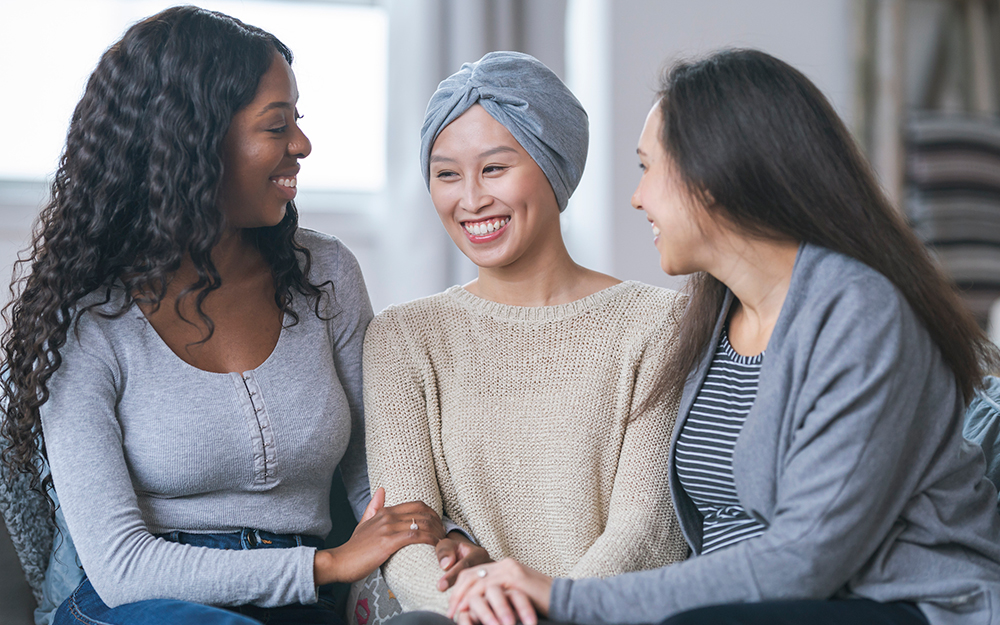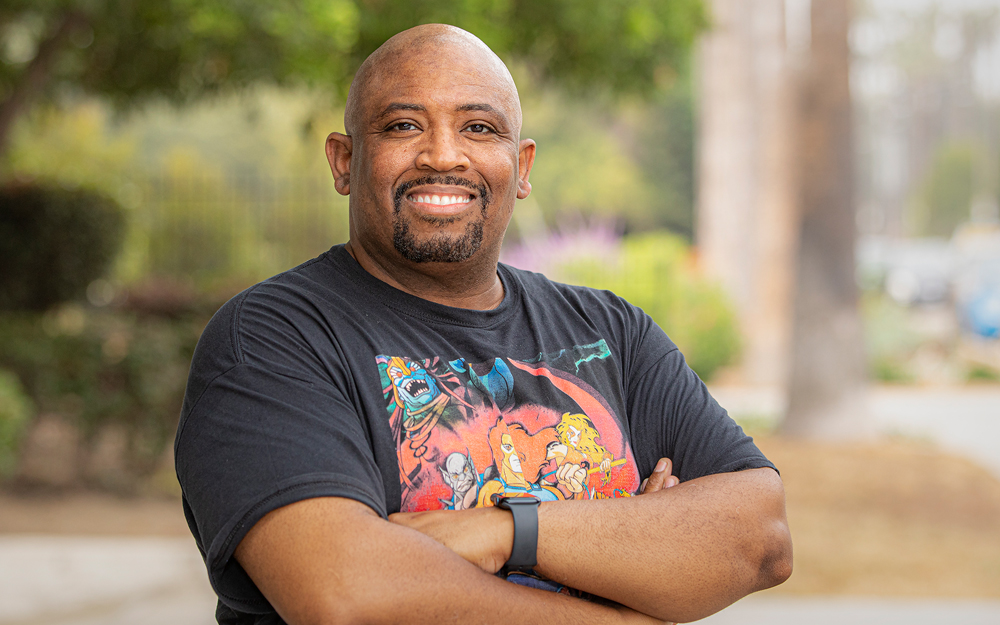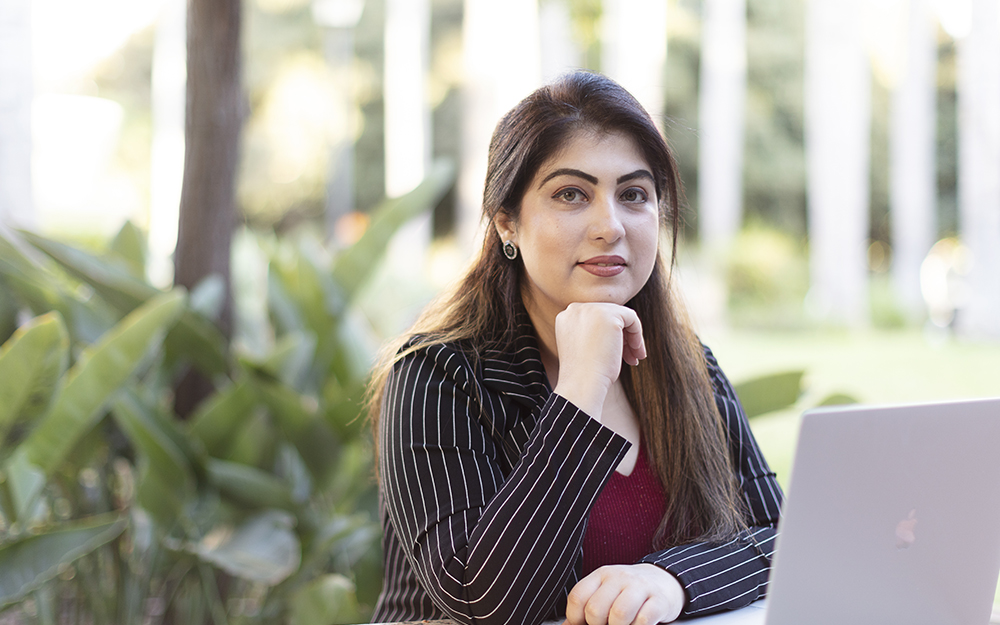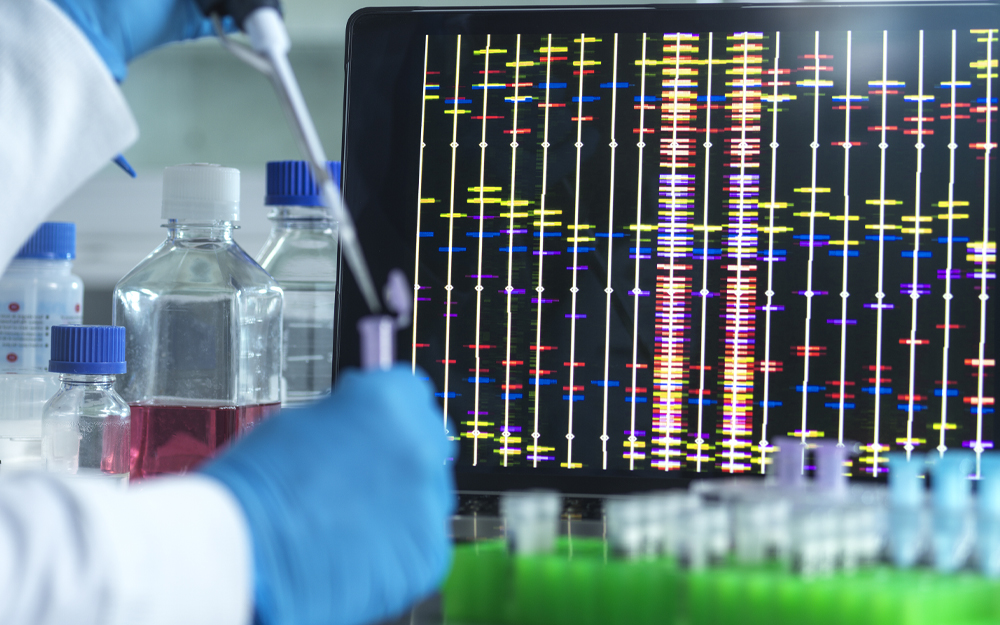Ways to Be a Better Friend to Someone Who Has Cancer
Date
May 31, 2023

Date
May 31, 2023
Credits
Medical providers featured in this article

In Brief
{{cta-block}}
Hearing that a friend has cancer can be jarring. You may immediately shift into supportive mode, ready to hear about their feelings or drive them to doctor’s appointments. Or you may be taken aback, unsure what to say or do.
Many people distance themselves from friends who are diagnosed with cancer or other serious illnesses. At a time when your friend needs you most, your absence may make a noticeable impression.
“It definitely can be hurtful when someone you thought was a friend does not rise to the occasion,” says Arash Asher, MD, director of Cancer Rehabilitation and Survivorship at Cedars-Sinai.
Friendships can give someone with cancer a sense of stability, even when so many other things have changed.
“With cancer, you can lose physical strength,” says Bronwen Jones, the interfaith chaplain for the Cedars-Sinai Samuel Oschin Cancer Center. “You can lose autonomy. You can feel sick. You might be not able to work, so your identity changes. Your role as a parent or your relationship with your pet might change.”
As a friend, your unwavering presence may reassure your loved one who has cancer, especially if others have become distant.
Why friends disappear after a cancer diagnosis
Some people hesitate to call a sick friend or relative because they don’t know what to say or they want to give their friend or relative space to process their diagnosis. This may snowball into weeks or months of unintended silence.
“It keeps people up at night; they feel terrible,” Jones says. “The longer you leave it, the harder it is to get in touch.”
Certain friends fade out of the picture because they put their own needs first.
“For those that are wired to live in the more hedonistic perspective—to have fun and enjoy life’s pleasures—this may not be what they want,” Asher says. “Some of our friends may not have a eudaemonic orientation, which is more about meaning and commitment and fulfillment. They may not be comfortable with these more difficult times, however painful that may be to hear.”
Other people disappear because they fear cancer, hospitals or hearing about medical treatments.
“It triggers some sense of fear or distress,” Asher says. “They don’t have the mechanisms to deal with it, so denial is their best coping mechanism, and they drop things.”
{{providers}}
How to be a better friend to someone with cancer
For some, supporting friends with cancer comes naturally. Others want to but don’t know how. If you’ve been absent too long, pick up the phone.
“It’s never too late to make that connection,” Jones says. “Push that guilt aside and go for it. You can say, ‘I’m sorry,’ but don’t go on for too long about it. It’s not about you.”
If you don’t know what to say to your friend, be honest.
“I would never discount the power of authenticity, even if it’s admitting that you don’t know what to say,” Asher says. “Say, ‘I’ve never gone through this process before, but I want to walk with you.’ and then ask for permission. ‘Would it be OK if I came over and brought soup and sat with you for an hour?’ or, ‘Would it be OK if I called once a week?’”
If you’re squeamish about medical information, say so, but find other ways to involve yourself in your friend’s life.
“You could say, ‘Sorry, I’m not really good at hospitals,’ and that encapsulates the whole medical thing, ‘but I can text you to see how you’re doing,’” Jones says.
If you don’t know enough about cancer to hold meaningful conversations, remember that your friend may just need someone who listens.
“Just be with them,” Jones says. “That’s hard to learn, but it’s the way to go. It’s incredible, because the less you say, the more you’ll hear. They’re going to reveal things slowly and get closer to you, because they trust you.”
"My sense, from speaking to many patients, is that they never forget the impact that their friends have on them during their time of need."
Topics to avoid when talking to your loved one
There are certain things that you shouldn’t say to someone with cancer.
Don’t ask how they’re doing, unless you want an honest answer.
“’How are you?’ is a loaded question,” Asher says. “It’s well-intentioned, but it puts the recipient in an awkward position. Do I put on a mask and say, ‘I’m doing fine,’ when I’m really not? Or do I really tell them how horribly I’m feeling?”
Don’t make judgments or assumptions—for example, expressing relief that it’s “only” stage 1 cancer.
Don’t tell someone with cancer to think positively.
“Saying, ‘Think positive and everything’s going to be fine,’ is not helpful for a variety of reasons,” Asher says. “The tyranny of positivity may make your loved one feel like they have to be positive every single moment, which is not possible for anyone in this situation.”
Investing in friendship is worthwhile
Staying in touch with your loved one throughout their cancer journey is important, however uncertain you may feel about what to say.
“My sense, from speaking to many patients, is that they never forget the impact that their friends have on them during their time of need,” Asher says. “There’s a sense of eternal gratitude and loyalty, almost unmatched, to the people that were there during their dark hour. That’s important for all of us to remember.”





